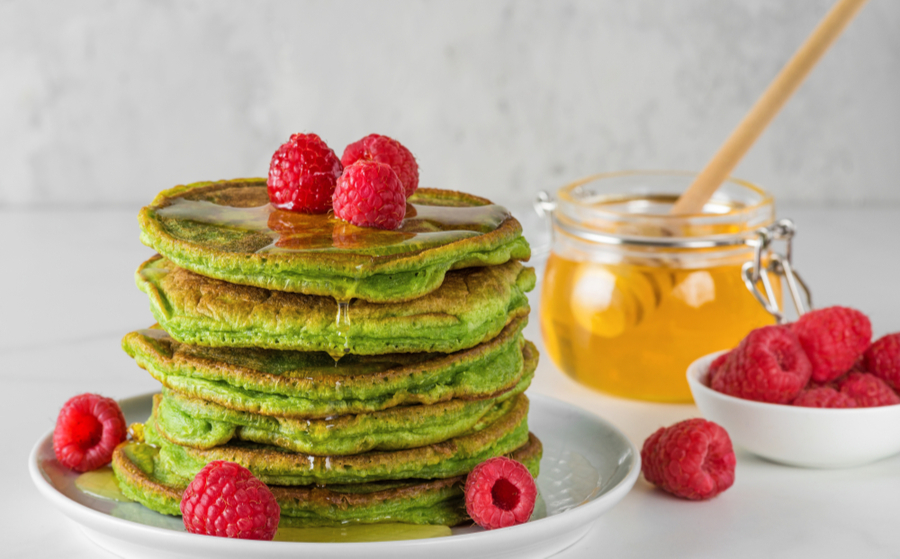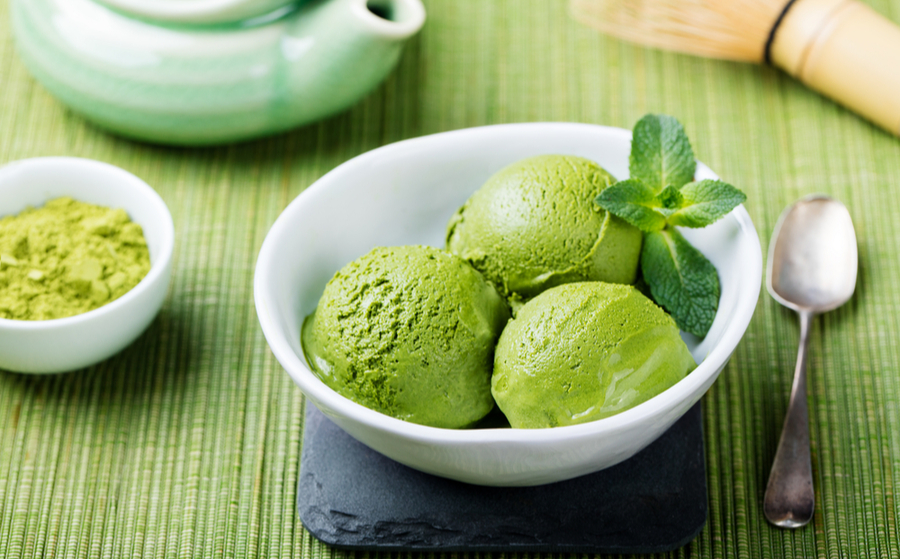
Matcha, the Japanese health elixir
Look beyond the food hype on social media, and the celebrities who say they consume it every day to be fabulous, and you will see that the supreme nutritional properties of this distinctive green tea powder called Matcha green tea are genuine.
What does Matcha mean?
In Japanese, Matcha literally means ‘fine powder tea’, but not all ground teas are Matcha.
But what actually is Matcha green tea?
The difference lies in how it is prepared, since this begins several weeks before harvest (about four weeks in advance). In this time, the tea plants are covered to hide them from the sun, slowing down their growth and increasing polyphenol and chlorophyll concentration in their leaves.
After harvest, the leaves are placed on a flat surface for drying where the petiole and veins are removed before being ground in stone or granite mills as carefully as possible, to avoid altering their properties or flavour, which is rich in nuances and intensity.
Green tea has many beneficial properties for our body:
- It is an excellent source of antioxidants that help to strengthen our natural defences against free radicals1.
- Help us to maintain good digestive function2.
- Improve concentration and focus3.
- To aid and maintain weight loss for those on diets4.
In addition, one study5 analysing different samples of green tea found that Matcha green tea contained a higher concentration of epigallocatechin gallate (the most abundant and pharmacologically active catechin in green tea). This suggests that there may be more health benefits, since it provides a greater quantity of phytochemicals.
How can I consume it
Matcha tea is a special type of green tea powder that has been used in traditional Japanese tea ceremonies, although today we can enjoy it in many delicious different ways.
Here are four simple recipes so that you can try our organic Matcha green tea at home.
-
Chia pudding with Matcha and cinnamon

This recipe can be vegan or non-vegan (depending on the type of milk used) and gluten-free. More importantly, it is very easy to make. You do need make it the night before, but this makes it an excellent option for breakfast when you don't have much time in the morning.
You will need:
- 250 ml milk (we recommend a plant-based drink, such as almond milk).
- 3 heaped tablespoons of ORGANIC CHIA SEED POWDER.
- 1 heaped tablespoon of ORGANIC CEYLON CINNAMON POWDER to sweeten and offset the distinctive flavour of Matcha.
- 1 teaspoon of ORGANIC MATCHA GREEN TEA POWDER.
- You can add any fruit as a topping for a fresh touch.
Preparation is very simple: mix everything with a spoon in few yoghurt pot-sized bowls and put it in the fridge to cool. We recommend stirring the Chia seeds that they don’t clump together in the hydration process.
-
Matcha vegan pancakes
The perfect breakfast for weekends, when you have more time to savour them. The famous American pancakes, but with a healthier touch, since they are vegan and contain Matcha: irresistible!

You will need:
- 2 ripe bananas
- 250 ml almond milk
- 250 g ORGANIC OATMEAL POWDER
- 1 heaped tablespoon of ORGANIC CEYLON CINNAMON POWDER, to sweeten
- 1 tablespoon of ORGANIC MATCHA GREEN TEA POWDER
- 1 teaspoon of baking powder
- Coconut oil to grease the pan
- Fruit to serve
In a bowl, mash the bananas with a fork and mix the milk in equal parts with the oatmeal, matcha and cinnamon until everything is mixed in. Place a non-stick pan on the heat and once hot, pour in the mixture to form a pancake. Turn it over and, when it is cooked on both sides, it is ready to serve with the fruit of your choice. If you like, add a little agave syrup to give it a more American touch.
-
Matcha vegan ice cream
When summer comes, we look for more refreshing recipes to cool us down on hot afternoons. Here is an easy way to make homemade ice cream that is also healthier than any conventional ice cream.

You will need:
- 3 frozen bananas (we recommend cutting them into pieces before freezing them)
- 250 ml coconut yoghurt
- 50 ml coconut milk
- 1 tablespoon of ORGANIC MATCHA GREEN TEA POWDER.
Mix all of these ingredients in an electric blender, one with an ice function if possible. By using frozen bananas, you can achieve a creamy consistency similar to ice cream. The more bananas you add, the denser the recipe will be. You can add toppings such as ORGANIC GOJI BERRY POWDER or ORGANIC WHITE MULBERRY POWDER.
-
Matcha and Tofu Tiramisu
As this last recipe is a little more sophisticated, it could become the ideal dessert for many of your meals this summer. Tiramisu is a typical Italian recipe made with mascarpone and the famous sponge fingers soaked in espresso. This is a new and different twist on this traditional recipe - healthier and delightful on the palate.
You will need for a medium-sized baking tin:
- 1 ripe avocado.
- 125 g of tofu.
- 60 ml of soya milk.
- 1 tablespoon of agave syrup.
- 1 teaspoon of agar agar, to help it set well.
- 100 g of oatmeal flakes, if you do not want to use sponge fingers.
- 1 heaped tablespoon of coffee powder (the one you normally use at home).
- 1 tablespoon of ORGANIC CEYLON CINNAMON POWDER for extra sweetening if preferred.
- 1 heaped tablespoon of ORGANIC MATCHA GREEN TEA POWDER.

The first thing you need to do is mix the coffee with the oatmeal or sponge fingers. To do this, heat around 100 ml of water and pour in the coffee. Stir well until the mixture darkens. In your tin, pour in the base and cover it with the coffee. Allow it to soak and cool while you make the mixture in another tin. Combine the avocado, tofu, plant-based drink, syrup, agar agar and matcha. Beat with a hand mixer until everything is well mixed. If when you taste it, it needs to be sweetened, add the cinnamon. Carefully place the mixture into the tin with the base and place in the fridge to cool.
The final touch to complete the recipe is to decorate it with a little Matcha sprinkled on top. Perfect and ready to enjoy.
Bibliography
- Extracted from the EFSA health claims application list, under evaluation (ID 1103).
- Extracted from the EFSA health claims application list, under evaluation (ID 1116).
- Extracted from the EFSA health claims application list, under evaluation (ID 1222).
- Extracted from the EFSA health claims application list, under evaluation (ID 2716).
- Weiss and Anderton (2003) Determination of catechins in matcha green tea by micellar electrokinetic chromatography. J Chromatography A 1011 (1-2): 173-180.